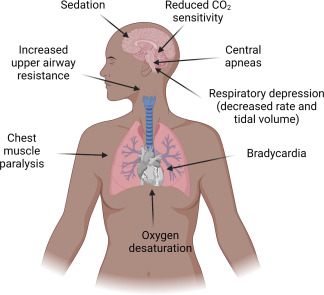How is purified follicle-stimulating hormone (FSH) (urofollitropin [Metrodin]) administered to an infertile woman as part of the pharmacologic treatment?
Intranasal spray
Intramuscular injection
Vaginal suppository
Tablet
The Correct Answer is B
Choice A reason: Intranasal spray is not a correct option, as urofollitropin is not available in this form. Intranasal spray is a method of delivering some medications through the nose, where they can be absorbed by the mucous membranes. However, urofollitropin is a protein hormone that would be degraded by the enzymes in the nasal cavity and would not reach the bloodstream effectively.
Choice B reason: Intramuscular injection is the correct option, as urofollitropin is available in this form. Intramuscular injection is a method of delivering medications into the muscle tissue, where they can be absorbed by the blood vessels. Urofollitropin is a protein hormone that needs to be injected into the body to bypass the digestive system and avoid being broken down by the stomach acids and enzymes. Urofollitropin is usually injected into the thigh or buttock muscles once a day for several days, depending on the dosage and the response².
Choice C reason: Vaginal suppository is not a correct option, as urofollitropin is not available in this form. Vaginal suppository is a method of delivering medications into the vagina, where they can be absorbed by the vaginal walls or act locally. Urofollitropin is a protein hormone that would not be absorbed well by the vaginal mucosa and would not reach the ovaries, where it is supposed to stimulate the development of the follicles (eggs).
Choice D reason: Tablet is not a correct option, as urofollitropin is not available in this form. Tablet is a method of delivering medications orally, where they can be swallowed and absorbed by the gastrointestinal tract. Urofollitropin is a protein hormone that would be destroyed by the stomach acids and enzymes and would not reach the bloodstream or the ovaries.
Nursing Test Bank
Naxlex Comprehensive Predictor Exams
Related Questions
Correct Answer is B
Explanation
Choice A reason: Nonreactive is not the correct result, as it indicates that the FHR does not show adequate accelerations with fetal movement. A nonreactive NST means that the FHR does not increase by at least 15 beats/min for at least 15 seconds in a 20-minute period. A nonreactive NST may suggest fetal hypoxia (low oxygen) or fetal sleep.
Choice B reason: Reactive is the correct result, as it indicates that the FHR shows adequate accelerations with fetal movement. A reactive NST means that the FHR increases by at least 15 beats/min for at least 15 seconds twice or more in a 20-minute period. A reactive NST is reassuring and suggests that the fetus is well-oxygenated and healthy.
Choice C reason: Positive is not the correct result, as it is not used to describe the NST. Positive is a term used for the contraction stress test (CST), which is a different test that measures the FHR in response to uterine contractions. A positive CST means that the FHR shows late decelerations (decreases in the FHR that begin after the peak of a contraction and return to the baseline after the contraction ends) with at least 50% of the contractions. A positive CST indicates uteroplacental insufficiency (a condition where the placenta does not deliver enough oxygen and nutrients to the fetus) and fetal distress.
Choice D reason: Negative is not the correct result, as it is also not used to describe the NST. Negative is another term used for the CST, which is a different test that measures the FHR in response to uterine contractions. A negative CST means that the FHR does not show any late decelerations during at least three contractions in a 10-minute period. A negative CST is reassuring and suggests that the fetus is well-oxygenated and can tolerate labor.
Correct Answer is C
Explanation
Choice A reason: A sleepy, sedated affect is not a concerning sign, as it is a common side effect of magnesium sulfate. Magnesium sulfate is a central nervous system depressant that can cause drowsiness, lethargy, and reduced alertness.
Choice B reason: Absent ankle clonus is not a concerning sign, as it indicates a normal neuromuscular response. Ankle clonus is a rhythmic jerking of the foot when the ankle is dorsiflexed. It is a sign of hyperreflexia, which can occur in severe preeclampsia due to increased blood pressure and cerebral edema.
Choice C reason: A respiratory rate of 10 breaths/min is a concerning sign, as it indicates respiratory depression. This is a serious complication of magnesium sulfate toxicity, which can lead to respiratory arrest and death. The nurse should monitor the woman's respiratory rate closely and report any signs of respiratory distress.
Choice D reason: Deep tendon reflexes of 2+ are not a concerning sign, as they indicate a normal neuromuscular response. Deep tendon reflexes are graded from 0 to 4, with 2 being the average. Magnesium sulfate can cause hyporeflexia or areflexia, which are signs of magnesium sulfate toxicity.

Whether you are a student looking to ace your exams or a practicing nurse seeking to enhance your expertise , our nursing education contents will empower you with the confidence and competence to make a difference in the lives of patients and become a respected leader in the healthcare field.
Visit Naxlex, invest in your future and unlock endless possibilities with our unparalleled nursing education contents today
Report Wrong Answer on the Current Question
Do you disagree with the answer? If yes, what is your expected answer? Explain.
Kindly be descriptive with the issue you are facing.
